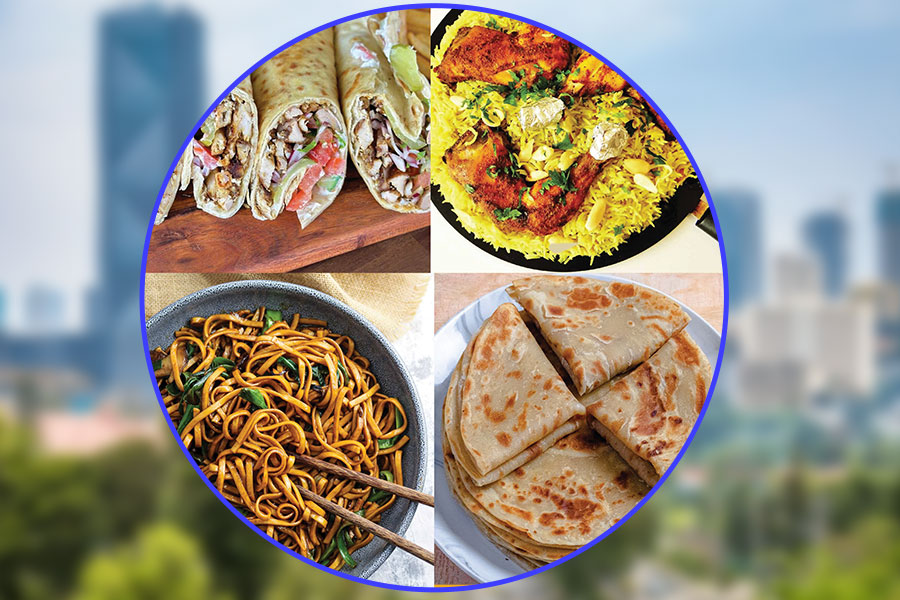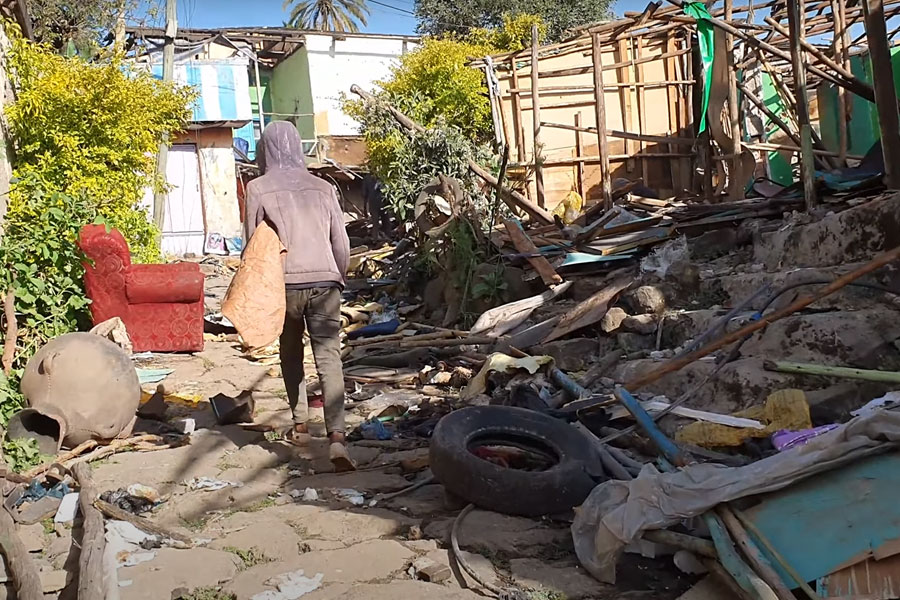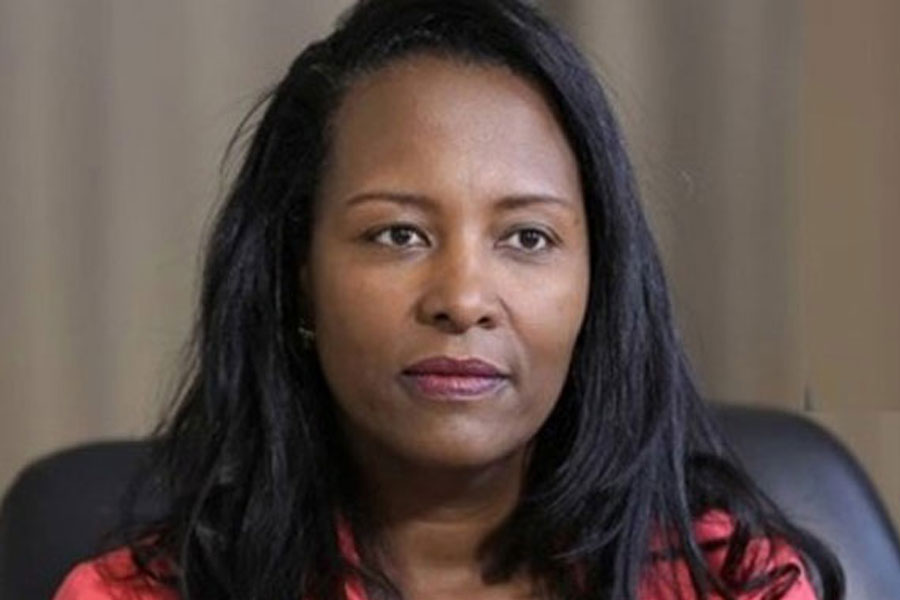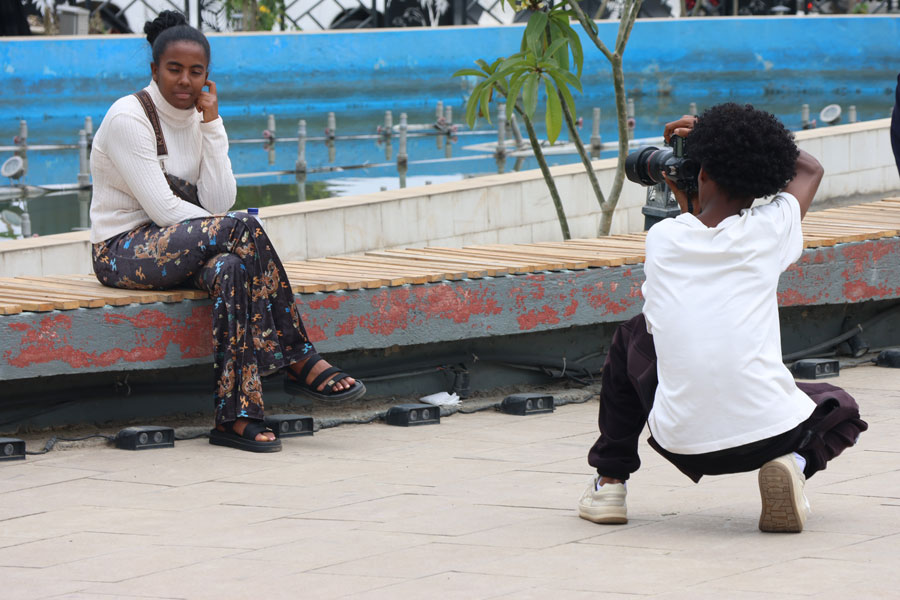
Featured | Dec 14,2019
Samson and Kidus Belayneh, 12 and nine years old of Biret Dildy, in Yeka district, were out looking for milk on a Wednesday afternoon right after school. They were sent out to buy milk by their aunt for their one-year-old cousin.
They scoured the neighborhood and returned home empty handed, an experience shared by many in the city these days. Addis Abeba has been hit by a shortage of milk since the end of Abiy Tsome, the Orthodox Christians’ fasting season. The fasting season was followed by Ramadan, the Muslim fasting month, which meant the shortage has persisted since at least April 28.
In one of the branches of Shoa Supermarket found on Africa Avenue, there were no local milk packages available for sale, just imported milk. The local milk ran out as quickly as it arrived on the shelves.
The shortages have also meant a spike in prices from around 14 or 15 Br a half litre to as high as 18 Br now.
“We are not getting even the 50lt or 60lt of milk we received before the fasting season,” says Enat Abera, owner of Enat Milk, a dairy shop around Sidist Kilo on King George VI Street. She adds that the fasting season coincides with the dry months of spring, a period that usually reduces the amount of available pasture for the cows.
Kebede Amede, general manager of one of the oldest dairy companies in the country, Lame Dairy Plc, which produces Shola Pasteurised Milk, agrees. Demand has always been much bigger than supply, the shortage is just more apparent during this season, according to him.
“The ever-growing population of the city, as well as the low productivity of local breed cows, have been compounding factors,” said Kebede.
Milk pasteurization machines are in operation at Lame Dairy Plc.
This is despite Ethiopia having one of the highest cattle populations in Africa, estimated to be around 58 million. A fifth of these are dairy cows, almost all of which are indigenous breeds that can produce 1.5lt of milk a day on average compared to cross-breeds that can produce up to 10lt a day. Ethiopia was able to produce 4.1 billion litres of milk last fiscal year, while Kenya stood at five billion litres, a country with lower cattle and human populations.
Despite their large numbers, getting these cows to produce in the dry season that may extend between December and June is difficult, as the available pasture decreases. Instead, farmers turn to chaff, or Furushka, which is made either from wheat, rice or sorghum or a combination of these.
“Even during the rainy season when there is plenty of grass for the cows, I have to provide them with some amount of Furushka, so that they can give a better quantity and quality of milk,” says Alemitu Assefa, 60, a dairy farmer around Biret Dildy. “But the price of the chaff has constantly been rising, and it is getting harder for me to keep up with it.”
Alemitu has four indigenous cows that can produce milk. As a result of the shortage of fodder combined with the genome of her cows, she gets only five litres of milk on a good day. She then sells the milk to customers who live in her neighborhood on a monthly contract at a price of 30 Br a litre.
If the cows are able to produce more milk than what she sells, Alemitu gives the excess to her grandchildren.
Although cross-bred cows produce a greater volume of milk, they should not be completely endorsed as the quality of their produce is inferior to the indigenous ones, according to Mohammed Aman, an Assistant Professor of Agricultural Economics & Agri-Business at Haramaya University for more than a decade. Cross-bred cows require more feed and are more susceptible to diseases, he adds.
“We need to keep the pure genome of the indigenous breed in a gene bank, because at some point we might lose the original gene of the local cows,” he warned. “This is important, because the indigenous ones have their own quality that we need to preserve in case of an emergency like widespread disease.”
Wezero Alemitu is getting ready to milk her cow by hand at her home in Bret Dildeye in the capital.
This is little solace to Alemitu who is suffering from an acute shortage of animal feed.
“I know the government has a lot on its hands at the moment, but something needs to be done about the escalating price of animal feed,” she says.
The price of Furushkastood at 600 Br to 650 Br a quintal about a year ago. A quintal now costs as high as 1,000 Br. This has forced everyone along the value chain to make price adjustments. Alemitu adjusted the price twice last year, most recently by 15pc. Processors such as Lame are also planning to increase their price by one Birr a litre in the coming week.
Animal feed retailers, especially those that sell chaff, blame the rapid rise in price on the shortage of by-products they get from flour factories. They insist that the national shortage of wheat is the culprit behind the supply shortage and price inflation of the animal feed.
“Flour factories are not providing us with as much of their by-products as before,” says Zewdie Asmare, a chaff retailer.
The nation has been undergoing a severe wheat shortage for at least the past two years, which the government has tried to address by importing the cereal and distributing it in the market. Just this fiscal year, nearly two million tonnes of wheat have been imported. Despite this, delays in procurement and supply have meant that the wheat shortage persisted.
The consequences of this have not merely been felt on producers of food items such as bread but also dairy companies. This is not a matter that only creates a shortage in milk but milk products as well.
Milk processing companies have a minimum percentage value of fat content that they can accept, because they remove some of the fat to make other products like butter, cheese and yogurt. This is being disrupted at the moment.
“In recent years that minimum value has been pushed down to 2.6pc to 2.7pc to the point where we are forced to just pasteurise the milk without removing any of its fat content,” says Kebede of Lame Dairy, one of 40 milk processing companies in the country. “We are trying to encourage those who bring us milk with more fat content by paying more.”
Ethiopia was able to produce 3.8 billion litres of milk in the 2012/13 fiscal year. Half a decade later, a 7.9pc growth had been recorded. Nonetheless, the number of milk processing companies has almost doubled in the past five years as the urban population, which wants more packaged foods like pasteurised milk, has been growing.
“Every time there is a dry season or some fasting season ends, the market is plagued with a shortage,” says Melaku Berihun, general manager of Sebeta Agro-Industry.
He recommends that the government control retailers that create artificial price hikes based on speculation and enforce the law on people that sell milk in the black market.”
“Ethiopia’s milk farming is not set up for commercial purposes, as it is carried out by smallholder farmers,” said Melaku. “The private sector needs to invest in large-scale commercial farms that can produce surplus amounts.”
Mohammed, on the other hand, suggests that Ethiopia work closely with countries such as Israel, which has one of the most productive cow breeds in the world, to get more out of its huge potential.
PUBLISHED ON
May 18,2019 [ VOL
20 , NO
994]

Featured | Dec 14,2019

Commentaries | Dec 09,2023

Radar | Aug 10,2025

View From Arada | Oct 05,2024

Fortune News | May 04,2019

Agenda | Mar 23,2024

Fortune News | Dec 01,2024

My Opinion | Jul 19,2025

Verbatim | Dec 10,2022

Featured | Jun 29,2025

Dec 22 , 2024 . By TIZITA SHEWAFERAW
Charged with transforming colossal state-owned enterprises into modern and competitiv...

Aug 18 , 2024 . By AKSAH ITALO
Although predictable Yonas Zerihun's job in the ride-hailing service is not immune to...

Jul 28 , 2024 . By TIZITA SHEWAFERAW
Unhabitual, perhaps too many, Samuel Gebreyohannes, 38, used to occasionally enjoy a couple of beers at breakfast. However, he recently swit...

Jul 13 , 2024 . By AKSAH ITALO
Investors who rely on tractors, trucks, and field vehicles for commuting, transporting commodities, and f...

Nov 1 , 2025
The National Bank of Ethiopia (NBE) issued a statement two weeks ago that appeared to...

Oct 25 , 2025
The regulatory machinery is on overdrive. In only two years, no fewer than 35 new pro...

Oct 18 , 2025
The political establishment, notably the ruling party and its top brass, has become p...

Oct 11 , 2025
Ladislas Farago, a roving Associated Press (AP) correspondent, arrived in Ethiopia in...